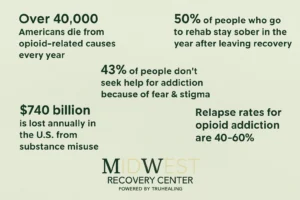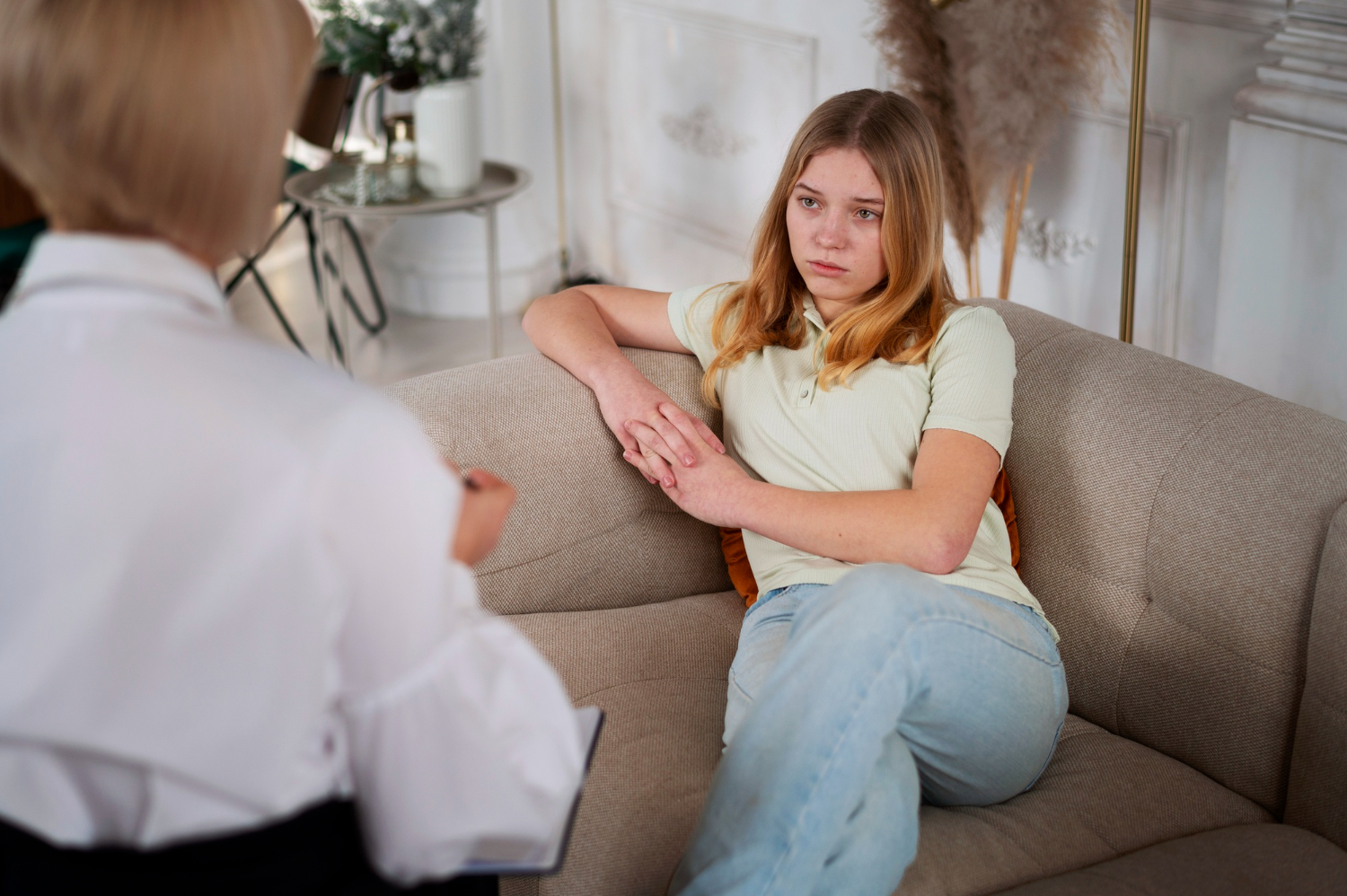There’s a moment—quiet, deeply personal—when something clicks. Maybe you’re staring at your phone, hovering over a number you’re not ready to call. Maybe you’re watching your reflection and wondering, “Is this really me?” Maybe someone said the word addiction, and for the first time, you didn’t argue.
If you’ve recently been diagnosed with opioid use disorder, the fear you’re feeling is not unusual. In fact, it makes perfect sense. A diagnosis can feel like a label you didn’t ask for. Starting treatment can feel like stepping into the unknown. And the last thing you want is to be treated like a problem that needs fixing.
At Midwest Recovery Center, we know that fear is part of the beginning—and we don’t expect you to be fearless. You’re not alone in this. And you don’t have to figure it all out at once.
The Weight of a Diagnosis No One Sees Coming
Opioid addiction doesn’t always look the way people expect it to. It can live behind functioning jobs, quiet families, or even good days. Maybe you were prescribed pain medication after surgery or injury. Maybe it started with a friend’s offer to “take the edge off.” You might not even remember when things crossed the line—just that now, you can’t seem to cross back.
Hearing the word “addiction” out loud—especially from a doctor or loved one—can feel disorienting. Like you’re being told your whole story just changed, even if you’re still the same person inside.
But here’s the truth: this diagnosis doesn’t define you. It’s not a stamp of shame. It’s a map—a painful but important sign that says, “You’re here. Now let’s find the way forward.”
Being Scared of Treatment Doesn’t Mean You’re Not Ready
Maybe you’ve heard the horror stories—cold-turkey detox, judgmental counselors, treatment centers that feel more like punishment than care. Or maybe you’re afraid of who you’ll be without the substances that have helped you cope, escape, or even survive.
That fear is not weakness. It’s your nervous system doing its job. But fear doesn’t mean you’re not ready. It just means you’re human. And Midwest Recovery doesn’t ask you to shove that fear aside—we ask you to bring it with you.
Real recovery starts with safety. Emotional safety. Physical safety. Psychological safety. That’s why we build treatment plans with you, not for you.

You Deserve Care That Moves at Your Speed
Some people walk into treatment ready to change everything. Others step in slowly, unsure whether they even want to stay. Both are valid.
At Midwest Recovery, we offer levels of care that fit different needs and comfort levels. Whether you’re looking for a full treatment plan or just want to talk with someone who won’t judge you, we’ll meet you where you are.
If you live nearby, you can explore opioid addiction treatment in Maumee, Ohio, where care options remain flexible and community-based. You don’t have to commit to everything at once. You can ask questions. You can slow down. You can even pause and come back.
Recovery Isn’t About Erasing Who You Are
It’s easy to imagine that treatment will strip you of your personality. That the parts of you fueled by adrenaline, creativity, or connection might go missing without substances. Especially if opioids helped you feel confident or calm in a way you couldn’t reach otherwise.
But treatment doesn’t take away your essence. It helps you rediscover it.
The right support won’t flatten you. It will reveal you. You’ll begin to notice the subtle shifts—your laugh returning, your sleep deepening, your ability to sit with yourself, even if it’s uncomfortable.
Recovery is not about becoming someone else. It’s about returning to the version of you that doesn’t have to numb, hide, or hustle to feel okay.
You’re Not the Only One Who Feels This Way
Opioid addiction is isolating. Even if you’re surrounded by people, it can feel like no one really knows what’s going on. Maybe you’ve lied to protect someone else. Maybe you’ve been holding it together for everyone but yourself.
That feeling—“I’m the only one who’s scared, the only one who can’t stop, the only one who might not make it”—it’s common. And it’s one of addiction’s cruelest tricks.
But here’s what we see every day: people who were terrified to walk through the door eventually becoming the ones holding it open for someone else.
You won’t be alone in this, even if it feels like it right now.
Healing Happens in Relationship
Opioids often take root where pain already lives—physical, emotional, relational. So healing can’t just be clinical. It has to be human.
At Midwest Recovery, connection is part of the treatment. It happens in therapy sessions, sure—but also in casual conversations before group, or in the small nod someone gives you when you share something hard.
Whether you’re joining from Toledo or considering opioid addiction treatment in Perrysburg, Ohio, you’ll find people who aren’t here to judge or fix you. They’re here to walk with you, even if you stumble.
It’s Okay If You Don’t Know What to Do Next
Sometimes, just reading a blog like this is the next step. Sometimes, making the call is too big—but saving the number feels doable. Sometimes, showing up doesn’t mean saying, “I’m ready.” It means saying, “I’m scared, but I came anyway.”
Whatever your “next step” looks like, we’re here for it. You don’t need perfect words. You don’t need to be 100% sure.
You just need a moment of courage—and we’ll take it from there.
Frequently Asked Questions About Opioid Addiction Treatment
What does opioid addiction treatment actually involve?
Treatment can include a combination of therapy, medical support (such as medication-assisted treatment), group counseling, and lifestyle support. At Midwest Recovery, we tailor your care to your specific needs—not a one-size-fits-all plan.
Do I have to stop using immediately?
Not necessarily. Some programs begin with harm-reduction approaches and medical stabilization before discussing abstinence. Your readiness and safety guide the timeline—not pressure.
Will I be judged if I’ve relapsed before?
Absolutely not. Many people seek treatment after multiple attempts. Relapse isn’t a failure—it’s often part of the process. What matters is that you’re here now.
Can I keep my job or take care of my family while in treatment?
Yes. Many of our outpatient and intensive outpatient programs are designed to work around life obligations. You don’t have to choose between healing and responsibility—you can do both, with the right support.
What if I’m not sure I’m “addicted enough” to need help?
If you’re asking the question, it’s worth exploring. You don’t need to hit rock bottom to benefit from support. Sometimes, getting help early can make a huge difference.
You don’t have to do this alone.
Call (888) 657-0858 or opioid addiction treatment program in Toledo, Ohio to learn more. Whether you’re ready or just curious, we’ll meet you where you are—with care, not judgment.


























